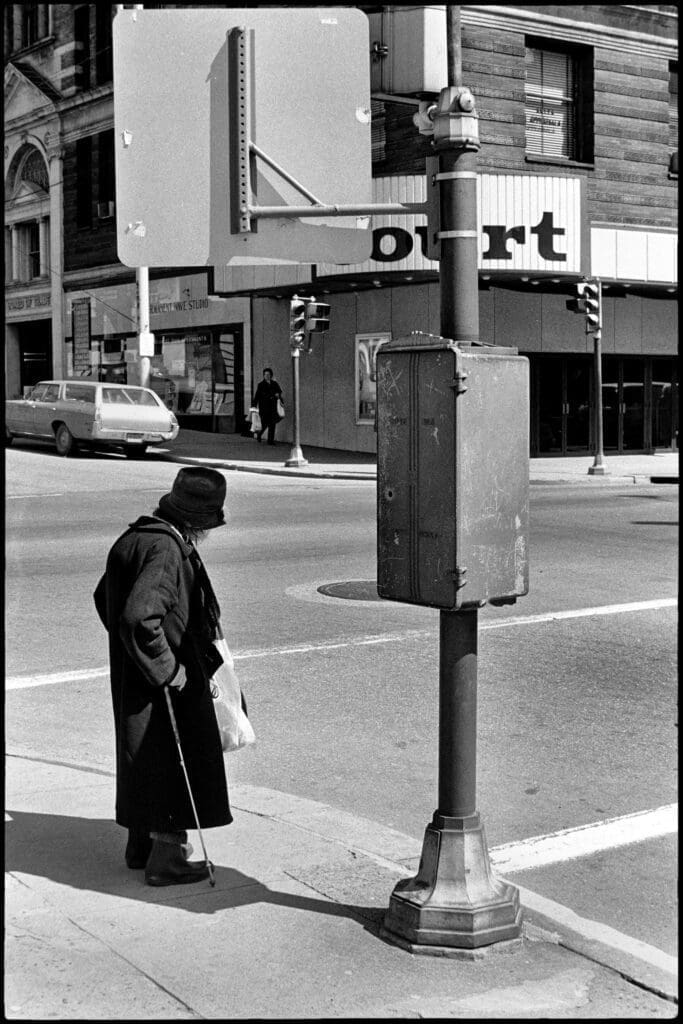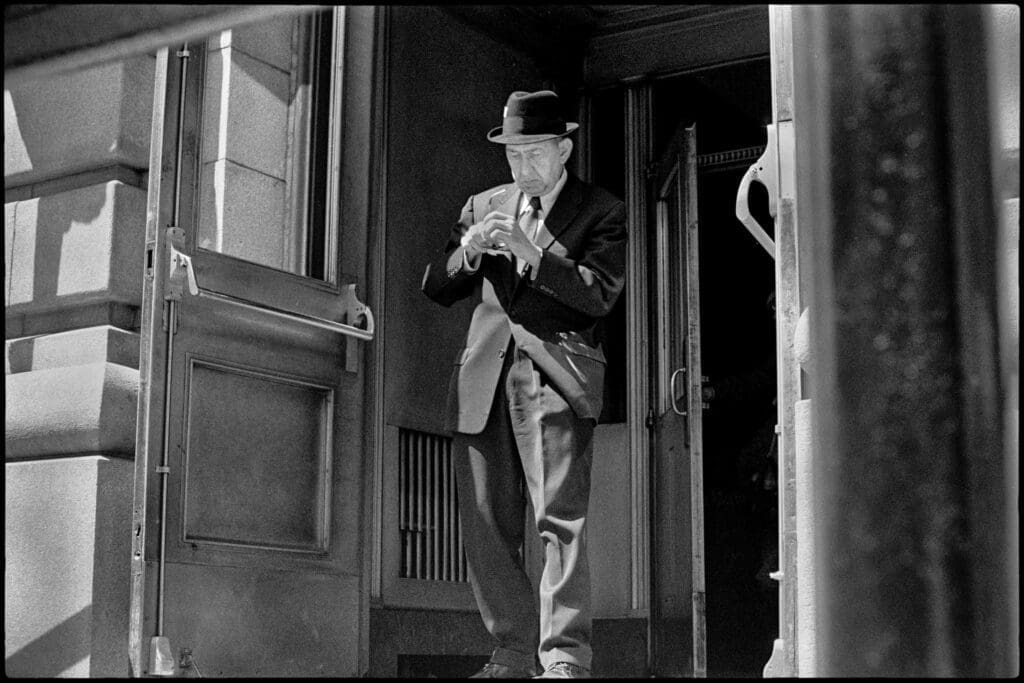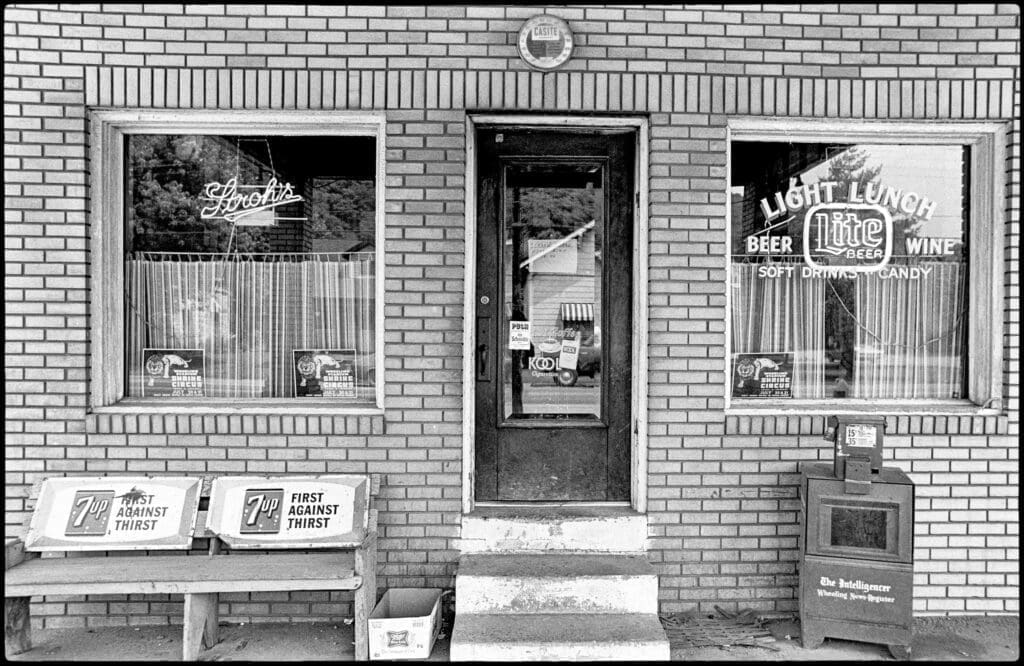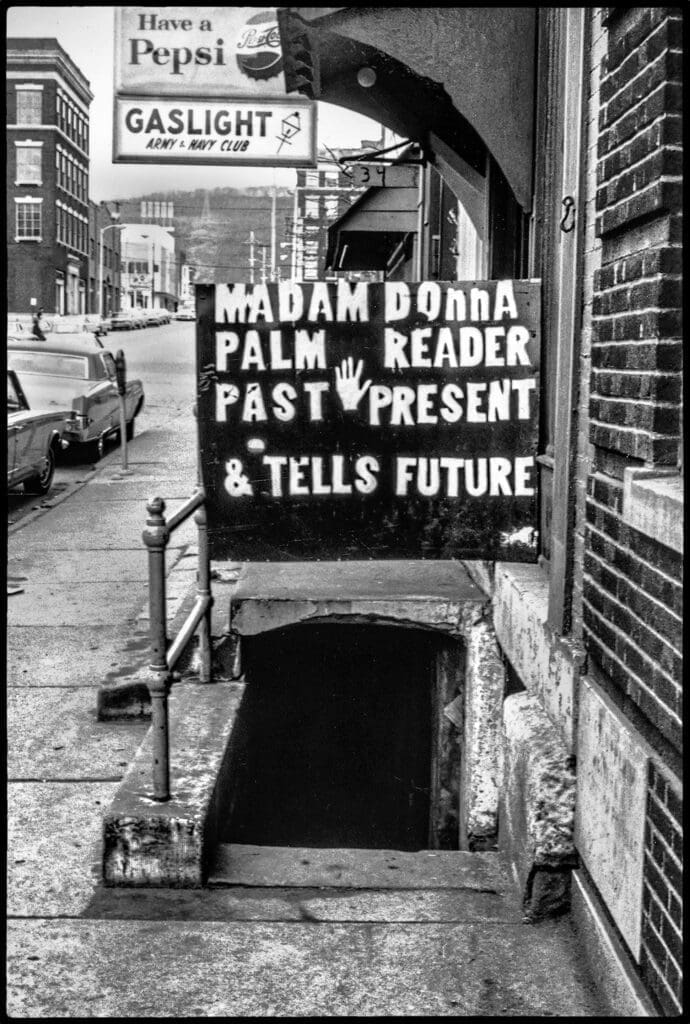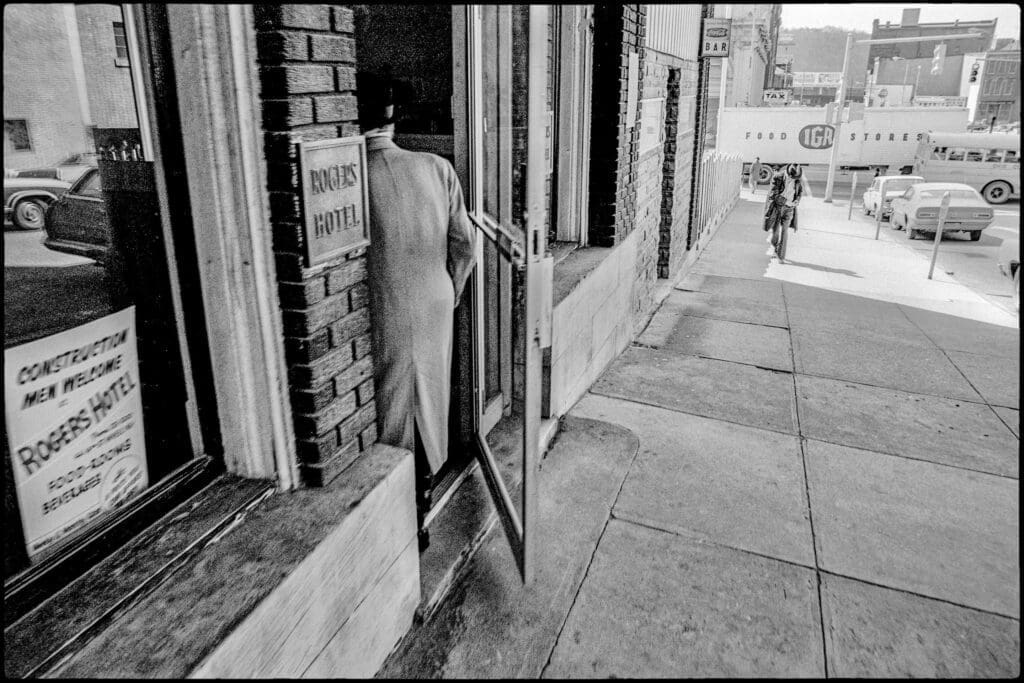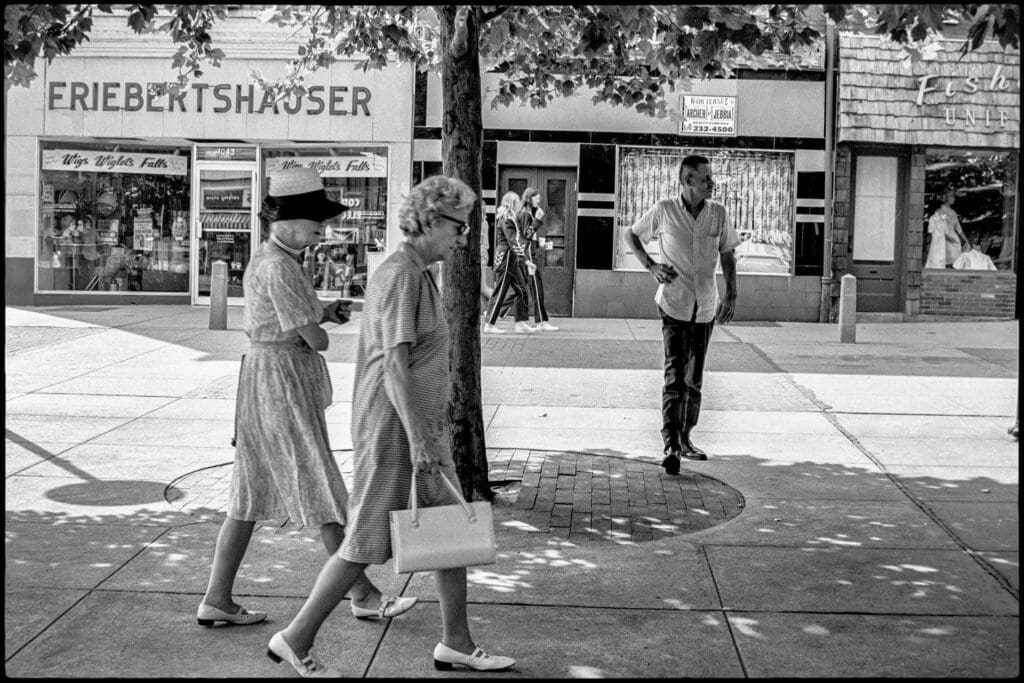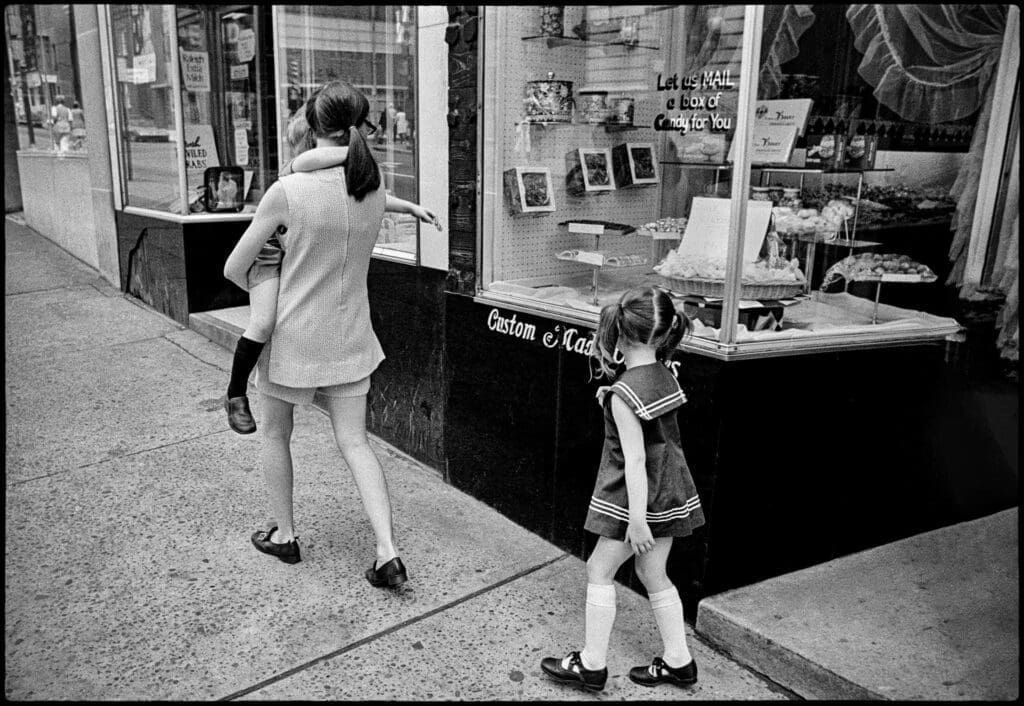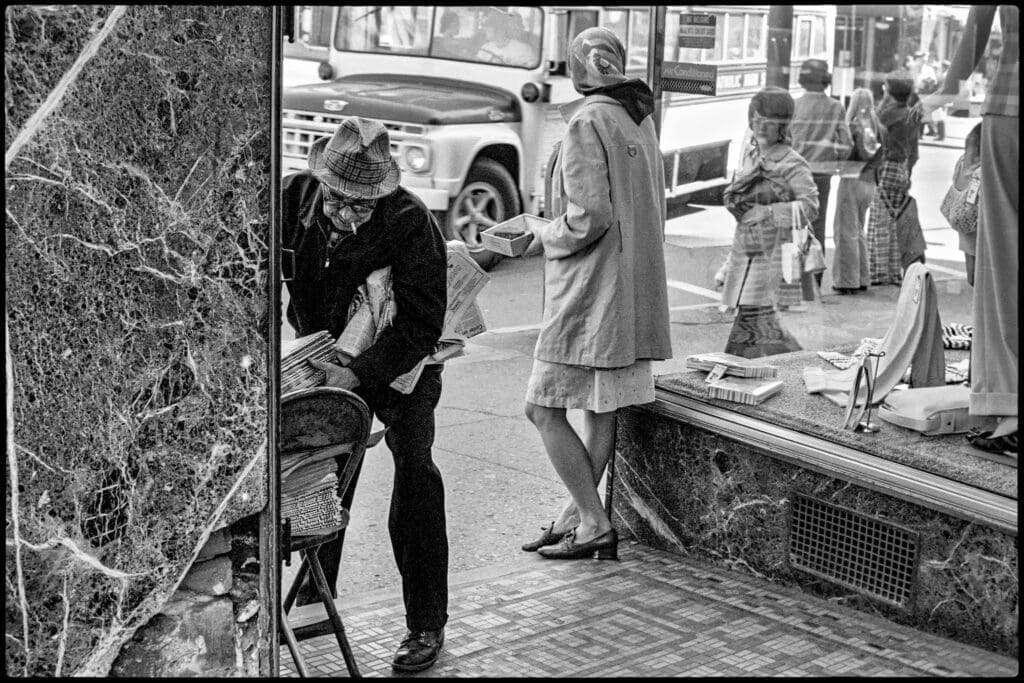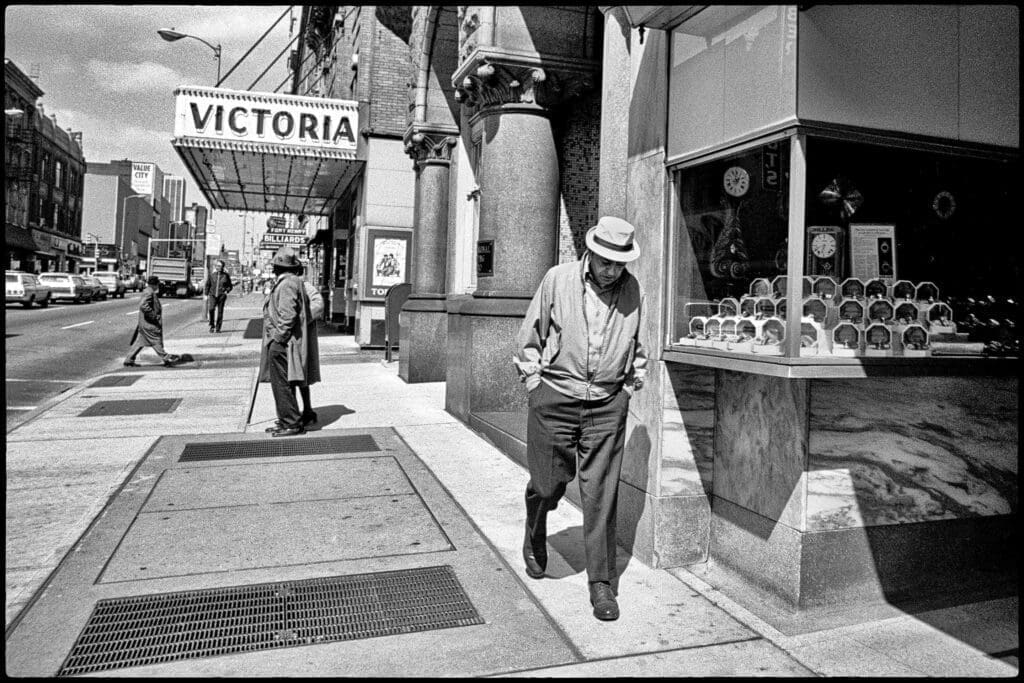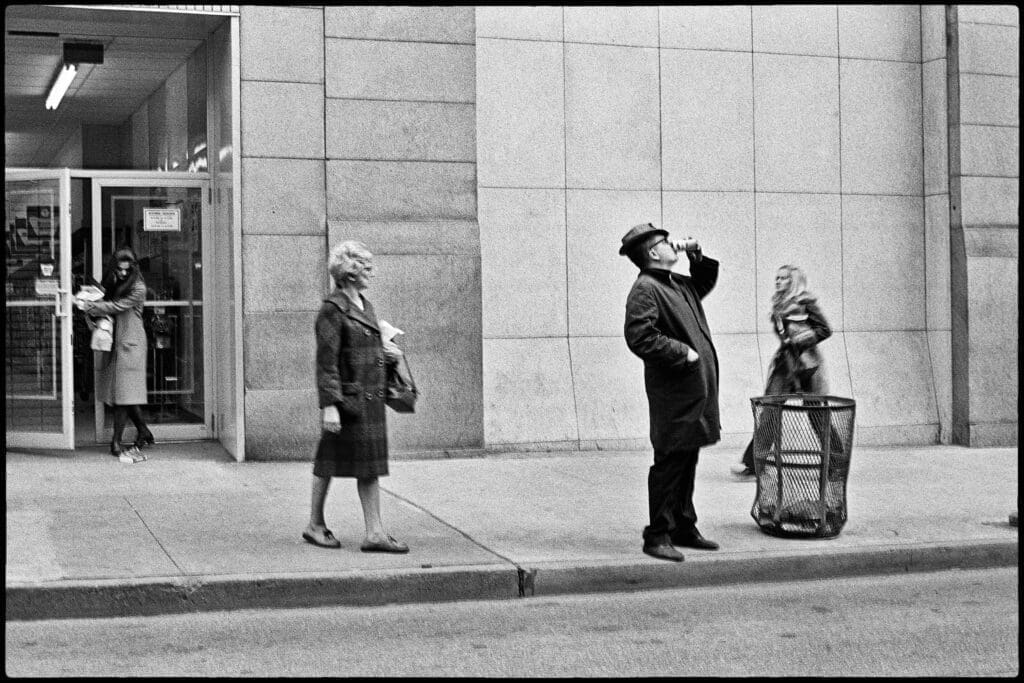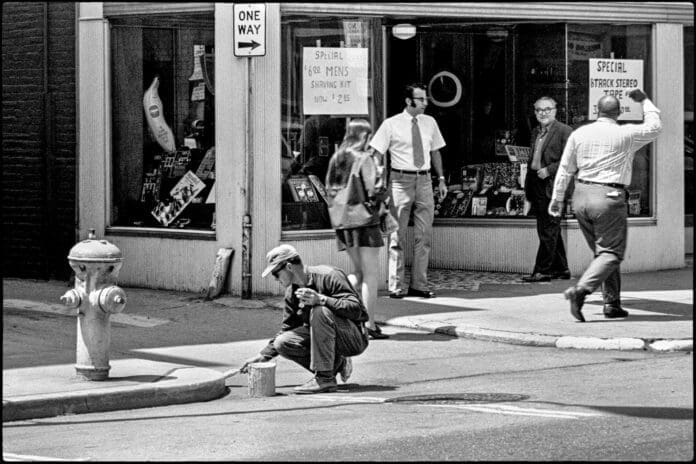(Publisher’s Note: This feature was initially published a few years ago, but because photographer Bill Burke’s images are timeless in nature, we wanted to re-publish this piece to be certain even more people come to enjoy his “eye” from back in the 1970s.)
Bill Burke has been featured on LEDE News because of his Wheeling in the 1970s photography exhibit at the Ohio County Library that opened in May 2022, but the insights of the Maryland resident concerning what he captured on film from the streets of downtown Wheeling specifically are, well, offered right here.
Burke, of course, did not realize it back in the 1970s, but with that borrowed Nikon he was taking photographs of differences. The automobiles were bigger and harder back then because most parts were made of steel. The downtown consumers wore dresses or suits, depending on gender, and their children’s attire was proper, too, and could not be classified as anything close to pajamas.
“When I went to downtown Wheeling, I really think that everywhere I looked, I saw something interesting. There was just so much going on. There were the shops, the people, and the way the people interacted with each other; every time I went to downtown Wheeling, I got consumed. The subject matter was right in front of me and each time it told a different story.
“It was staring me in the face, so I just responded to that by taking the pictures the way I did, I guess,” he explained. “My pictures show the young and old and everyone in between, and I didn’t have a plan to shoot X, Y, and Z. I just went out and shot what I thought was interesting.”
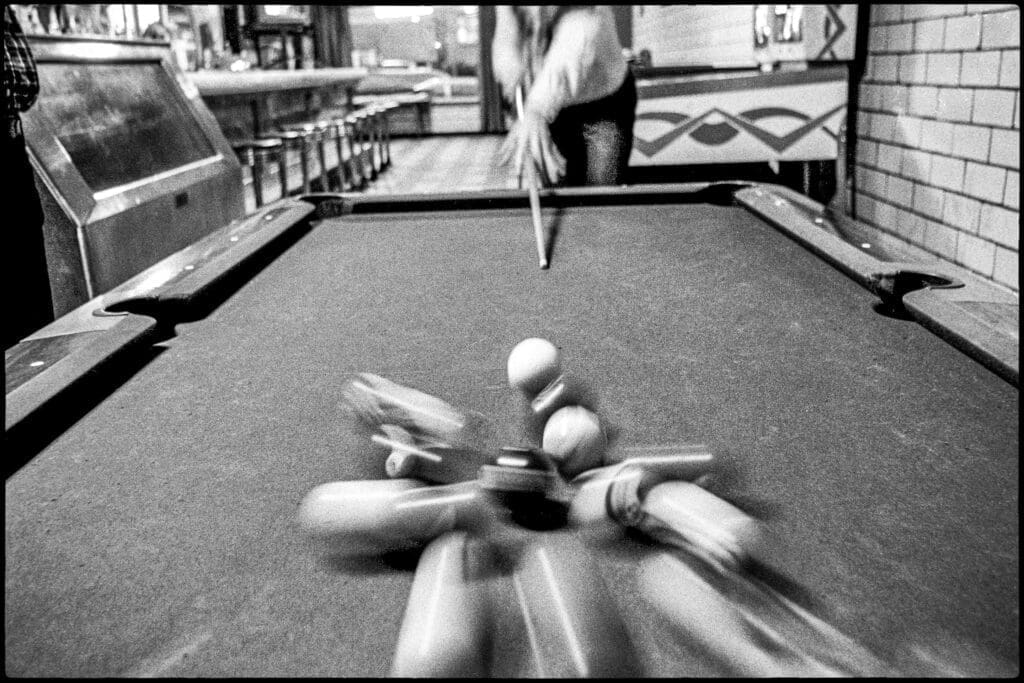
Culture Contrast
Burke’s mother had heard from a friend only a few positive reports about Wheeling College so, at the tender age of 18 and fresh out of an all-boys academy from Maryland, he was delivered to the Pleasanton neighborhood of the city of Wheeling.
That’s how it worked 50 years ago. Parents made decisions, not children.
“The first day I came to Wheeling was the first day I attended Wheeling College,” he said, “because that’s where my mother had decided I was going to school. And it worked it out very well because that’s where I made my best friends I still have today.”
At the time he attended Wheeling College, from 1967 to 1971, organized crime was prevalent in the city. Burke, though, remained removed from any such involvement.
“I do remember talking about the mob stuff in Wheeling, and some of my friends were much more involved. Me? I just let that stuff roll off my back because it didn’t seem to affect me in any way,” Burke reported. “I do remember talking about it, but I didn’t have any experience with that stuff. I guess I was just in my own little world.
“Now, I do remember the story about one of the mob honchos blowing up the car of another honcho while he was in it,” he said. “People talked about that incident a lot because people were so surprised the guy in the car lived. It was pretty surprising.”
Besides, Burke was too busy capturing the old blending with the new in Wheeling as fluorescent bulbs behind plastic signs were replacing those in-your-face neon cursive symbols in many storefront windows, and shoe selections were placed on self-serve shelves instead of the stock being hidden away in some back room somewhere.
“Back then there weren’t places like The Highlands or the mall, so if you needed something, you pretty much had to go to downtown Wheeling,” Burke remembered. “And if you look at my pictures from that time, you can see that there are all kinds of pedestrian traffic and vehicle traffic. Trucks, cars, everything everywhere because that’s where you had to go.
“But when I was there last month, I did notice a lot of cars downtown, but they were parked because there were a lot of people working downtown now, but they don’t work at shops like they used to. They work in offices now,” he said. “But downtown Wheeling is no longer the hubbub like it used to be. There is life, but it’s a much different kind of life than what made it so special when I lived there 50 years ago.”
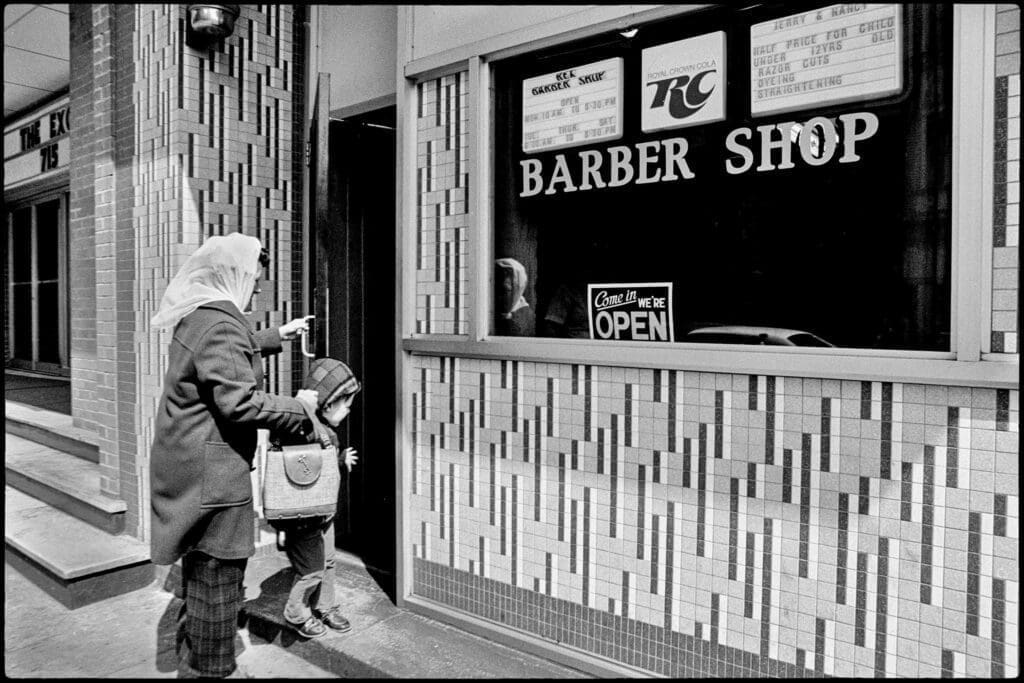
The Story a Show Tells
When the Rogers Hotel first opened in 1915, it was known for being fireproof because of the material used to construct the lodge. By the time Burke found himself meandering by along 14th Street, the inn’s reputation had altered through time and is now an empty, vacant structure.
But he did see a retailer’s addiction to their display window, and that brick walks and shade trees were nice downtown 50 years ago, too.
“If I may say this, those pictures have what I refer to as a ‘timeless quality.’ They are dated, and they are not. People can look at the fashions and the cars to date them, but on the other hand, the town is still there,” Burke insisted. “The people are still there. The families caring for each other, the friends having friends. Those things jumped out to me.
“There were always people,” he continued, “and they were always doing something.”
Ultimately, that is why Burke finally accepted the library’s invitation to return to his old college town to reveal the Wheeling he had held hostage for half a hundred years. The show is open to the public six days per week as long as the library is not using the space for a different function. Burke’s exhibit will remain in place through August.
“Standing in front of people and talking to them about something has never been my thing, but the more I thought about it, the more I thought the people needed to see these pictures,” he said. “So, I got over my little hesitation and agreed to do the show.
“I know there were some people there when I visited for the opening, but I’m not sure how many have been there since the opening back on the 19th (of May),” Burke added. “I do hope people of today find them interesting.”
